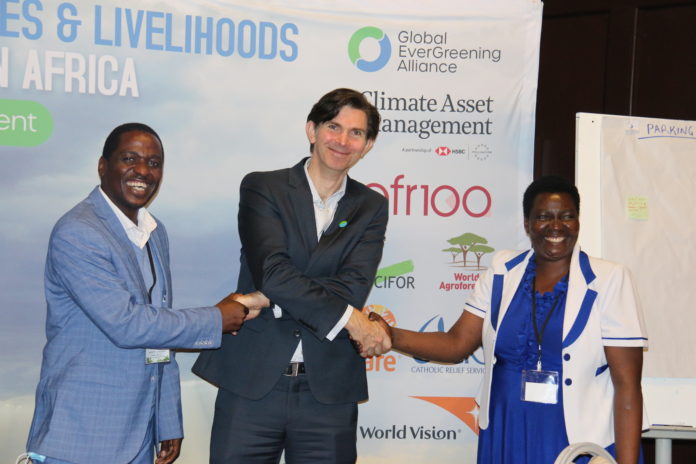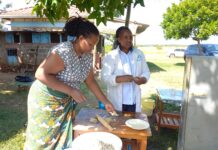By Diana Wanyonyi
Nairobi, Kenya: The biggest farmer-led land restoration program that is privately funded ever undertaken in the world has been launched in Kenya’s capital city Nairobi.
The program aims to benefit small-scale farmers in six countries in Africa.
About 1.5 million smallholder farming families or rather about 9 million people across six African countries namely Kenya, Ethiopia, Malawi, Tanzania, Uganda, and Zambia will benefit from the Global EverGreening Alliance’s Restore Africa Programme aims to restore 1.9 million hectares of land.
The commitment to finance the Restore Africa Programme was announced by Climate Asset Management at COP26 in Glasgow in 2021. The Programme will also significantly contribute to the African Forest Landscape Restoration Initiative (AFR100), which aims to bring at least 100 million hectares of degraded land under restoration by 2030.
The Restore Africa Programme was officially launched in Kenya’s capital Nairobi in May this year, bringing together community representatives, government officials, non-governmental organizations, representatives from Climate Asset Management, AFR100, and the Global EverGreening Alliance.
According to Chief Executive Officer of Global Evergreening Alliance Christopher Armitage, the Alliance was created with the aim of building the capacity of non-governmental organizations and small-scale farmers with the aim of reducing food insecurity, curbing climate change, and rural poverty.
“The alliance was created by some of the largest capable nonprofit organization, technical and research organizations like ICRAF, CARE, World Vision, and Oxfam in Nairobi in 2012 and it was basically they are all trying to do similar things. They are all trying to work with small-scale farmers to support them to improve the productivity and reliability and resilience of the farming systems to address food insecurity, reduce rural poverty, and address climate change. But they were all working in isolation of each other, they are all trying to apply for the same grants they are competing, so there was no opportunity to learn the lesson from or to build on the innovation of each other.” He elaborated.
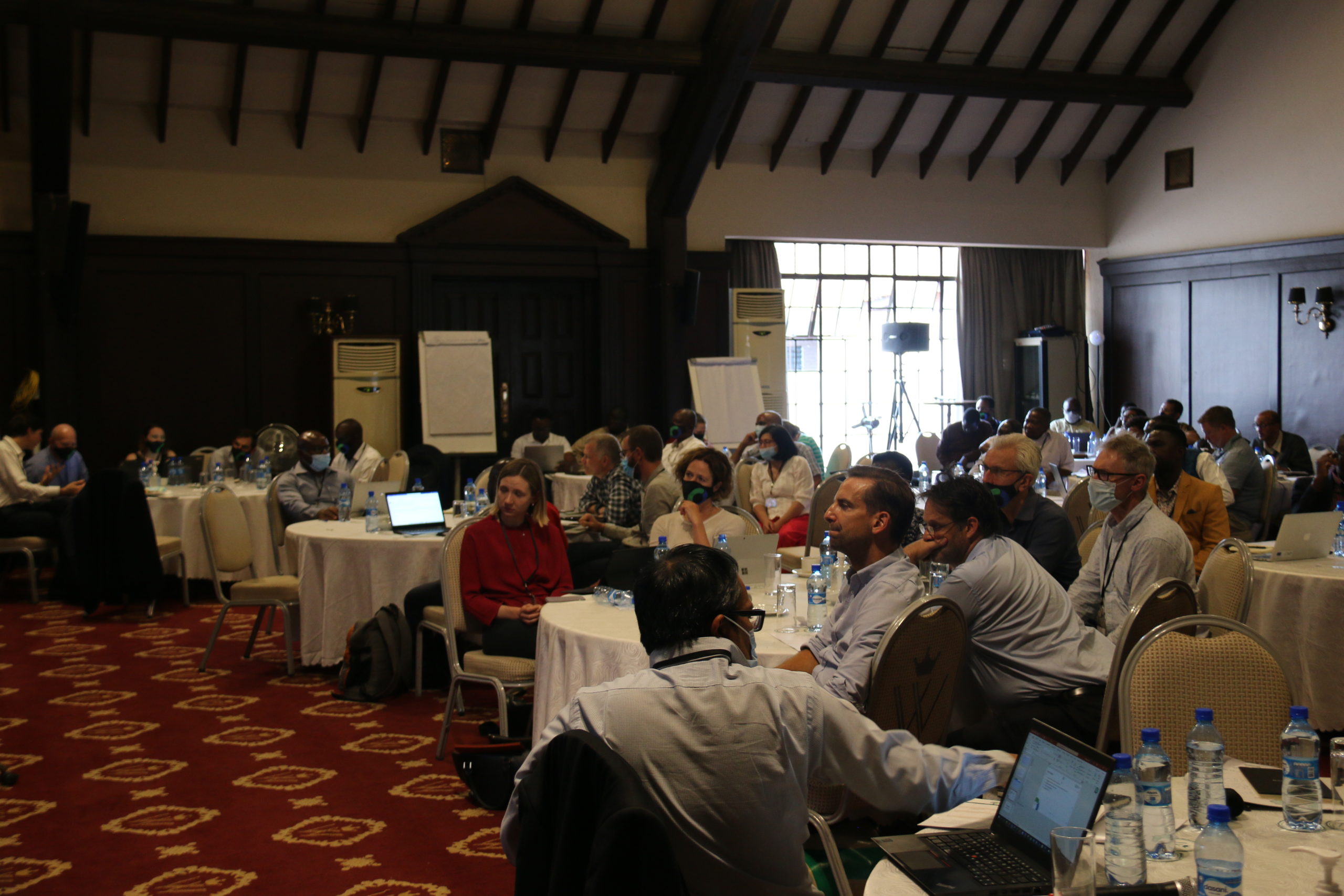
“The Alliance was intended to provide this platform to support truly effective collaboration at a massive landscape scale and to support transformative impact so we can support millions of households and to build on the particular strength, the capacities, and existing programs of all organizations. So we can take them to scale and we could take the best of the expertise from different organizations to learn from all experiences and deliver the best possible outcomes for communities from the ground.” He said.
Restore Africa program represents 10 years of work with a collaborative design by lots of cycles from the across six countries and each said country has a lead implementing organization in each country and these organizations have worked together for four years now designing a massive scale collaborative restoration program.
Climate Asset Management confirms the first tranche of a USD 150 million financing package to kick off the Global EverGreening Alliance’s nature-based carbon program in Africa.
“This is a paradigm shift in the way we support land restoration with private sector funding to support the sort of scale the world’s most vulnerable communities really need, if we are ever going to overcome challenges of food insecurity, rural poverty, and rural change, we need large scale investment. We need to work with millions of farmers,” said Christopher Armitage, Chief Executive Officer of the Global EverGreening Alliance.
He, however, added that “this is the proof of the concept, this is the scalable replicable model that we can now build on and there is an enormous opportunity for similar sorts of programs to come behind these.”
On farmers’ benefit, Armitage said that the programme will deliver enormous direct benefits to communities in terms of increasing productivity and profitability of the farming system, thus generating an enormous revenue stream over the next thirty years. “The 45 percent of all carbon credits will be directly returned to communities, and that will provide reliable economic empowerment for a long time.
“The launch of the Restore Africa Programme marks the start of what will significantly contribute to our AFR100 goal of bringing at least 100 million hectares of degraded land under restoration by 2030. The program’s community-driven approach allows the needs of communities to be met for long-term sustainability” said Mamadou Diakité, Acting Head of Environmental Sustainability Division Manager of the AFR100 Secretariat African Union Development Agency AUDA-NEPAD.
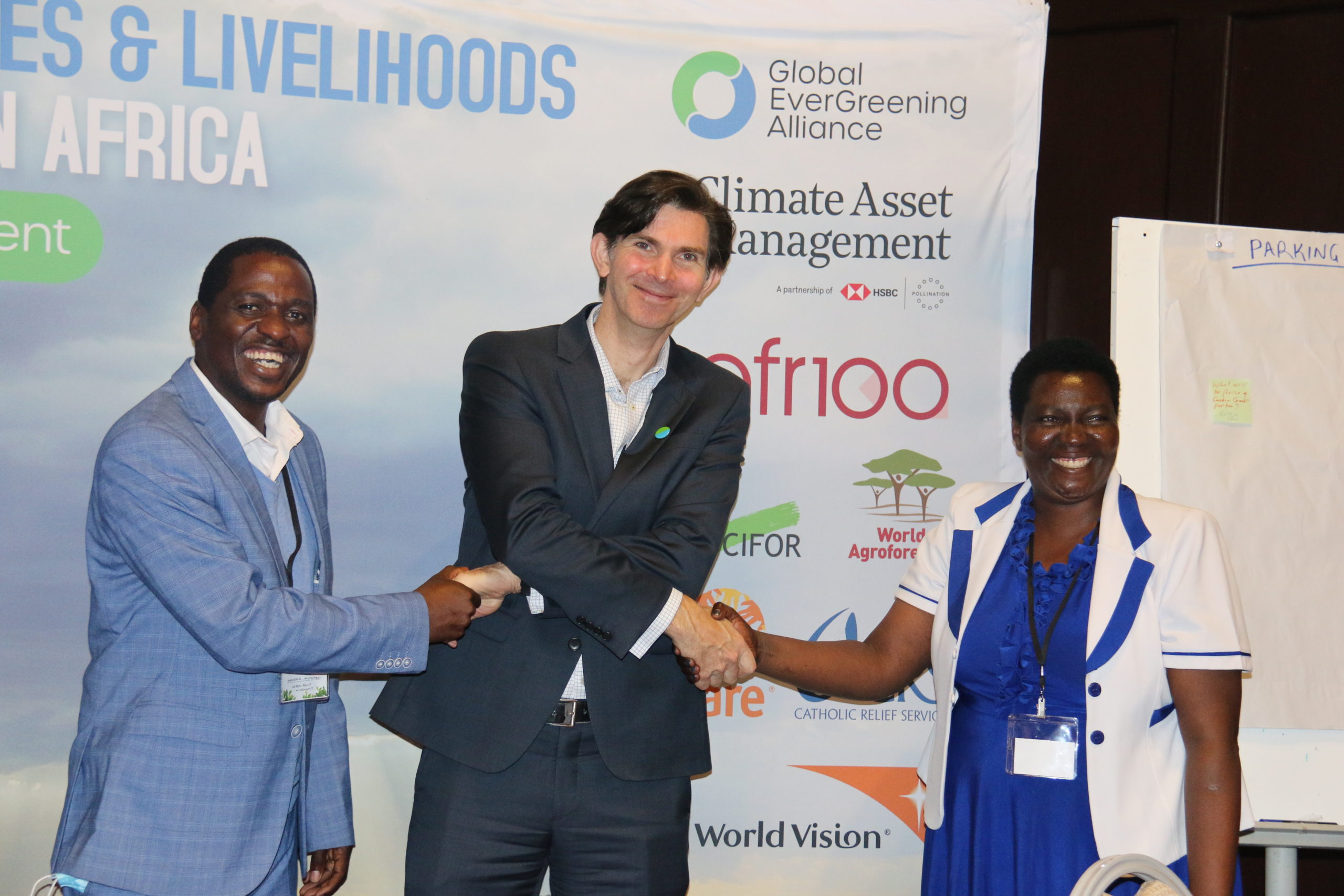
Mr. Diakité observed that such programme will allow also promote sustainable agriculture supporting smallholder farmers which will contribute to food security and job creation in Africa.
He observed that the role of AU and NEPAD has a continental mandate from the heads of the state and also AU ensures that this initiative is the country led meaning, the ownership of the African government is true and visible.
On financing, Mr. Diakité applauded some of the African countries for committing to putting up their resources in the initiative, a call he describes as it minimizes the idea that African countries depend on donors. “We can see that in this initiative that the African countries especially those who have joined have the commitment to put first their own resources. We know countries like Ethiopia, Rwanda, and Malawi have put millions of dollars in their own national budget, and this is also to minimize the idea that African countries are only waiting for outside support.”
“We have the proof that the African countries and governments are putting money for land restoration, sustainable land water management from their own budget because they see the multiple benefits it can create in a given country.” Said Mr. Diakité.
Through co-creating processes, collaboration, and working together, the program aims to connect the actions of multiple stakeholders to create a massive scale. This is needed to transform and restore ecosystems which is attractive for corporates and organizations looking to offset their unavoidable carbon emissions as they transition to a net-zero model.
To mark the launch, Climate Asset Management, the specialist Natural Capital Asset Manager, a partnership between HSBC Asset Management and Pollination, has confirmed its Nature-Based Carbon Strategy will be providing the first tranche of an estimated $USD150m financing package to kick off the program in Kenya, Malawi, and Uganda.
Part of the carbon credits generated over the lifetime of the program will be used by its investors to contribute to their net-zero carbon commitments.
The programme will work alongside farmers and local communities and it aims to provide technical assistance and capacity-building know-how. It will also enable them to make a transition back to traditional agroforestry practices with a move away from the western style agriculture that is not suited to the African landscape and re-education in these traditional agroforestry practices where knowledge has been lost over the years;
Also, it will improve livelihoods through growth in crop yields from superior practices, diversification of income through a diversity of cropping rather than monoculture, inclusive employment opportunities particularly for women and carbon revenue sharing; and better routes to market to facilitate the sale of products through market linkage and networks.
“This is just the start of what we believe will become a win-win journey that will target significant improvements to the livelihoods and food security of up to 10 million people through productive farms that are resilient to the impacts of climate change while aiming to provide our clients with high-quality carbon credits for their own journey to net-zero,” said Caroline van Tilborg, Senior Carbon Investment Manager at Climate Asset Management
She added that “this incredible journey we are going to have for over the next 15 years, the two worlds coming together that is the world of NGO’s and private investors, it’s going to be a bumpy road with a lot of lessons learned but I totally believe that as long we step into this with an open mind and willingness to listen.”
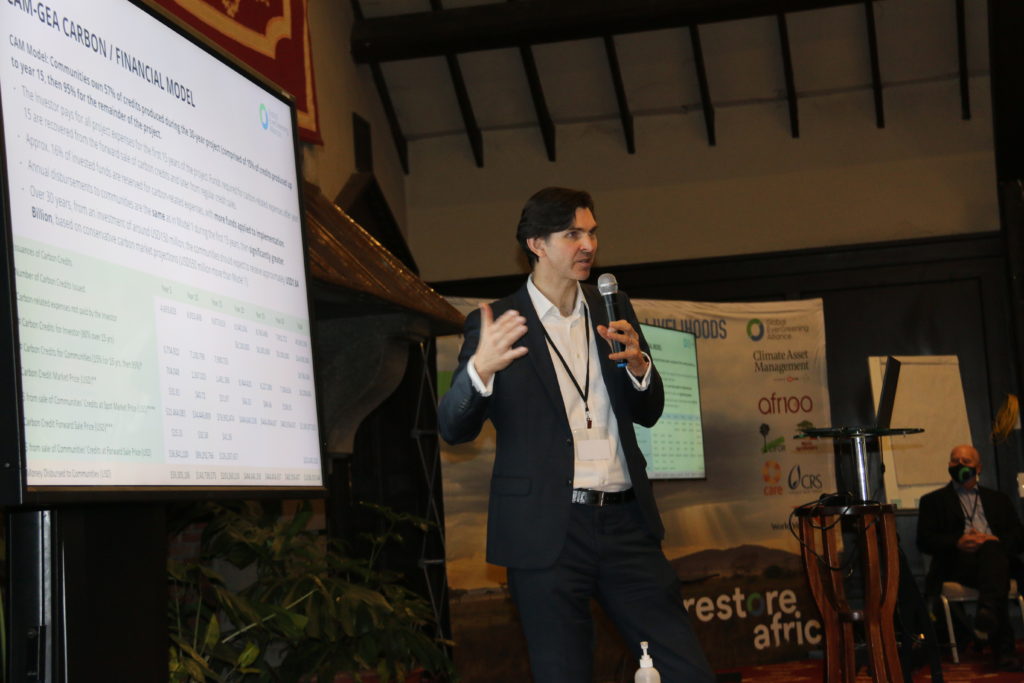
Christof Kutscher, Chief Executive Officer of Climate Asset Management added “we are delighted to be part of what reputedly will be the biggest community-led land restoration project in the world. Having made the original announcement of our agreement at COP 26, it is great that the talking has turned into direct action, and we hope these inception workshops are a great success and provide a strong platform for the future”.
Haika Mtui, program director at CARE Tanzania, said that the programme will help women and young girls. “Looking at the vast landscape in Tanzania, wide stakeholders experience and with government, we are ready to use this programme and bring impact to communities that we are going to serve and most important with our eyes focused on women and girls we are really happy to see that they are part of this programme.”
Tanzania will focus on financial inclusion, women empowerment, and policies to enable an environment where livelihood and land restoration are all being taken care of.
Uganda has applauded the programme saying that it will help with the curbing of climate change. Niek de Goeij is Uganda’s Country Manager at the Catholic Relief Services.
“Climate change is real, the climate is in Uganda, where small farmers’ reduced yields, we see savior network disasters as a result of environmental degradation, ultimately people were displaced because of the rising lakes or probably the land is no longer arable.” He finally said.

